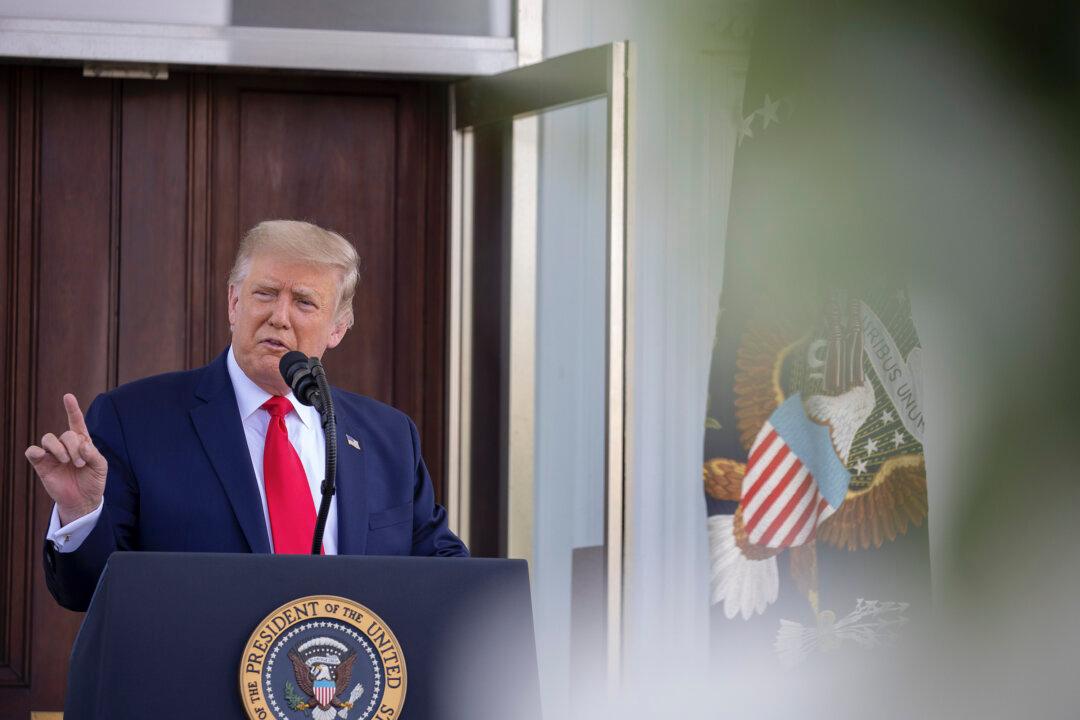President Donald Trump suggested on Sept. 7 that the leaders of the Department Defense are not fond of him because they are aligned with the interests of the weapons and military equipment corporations.
“I’m not saying the military is in love with me; the soldiers are,” the president said during a Labor Day speech at the White House. “The top people in the Pentagon probably aren’t because they want to do nothing but fight wars so that all of those wonderful companies that make the bombs and make the planes and make everything else stay happy.”





